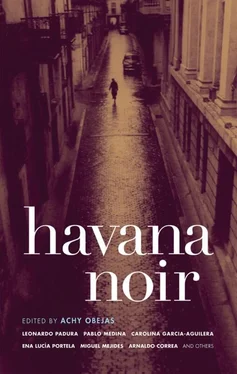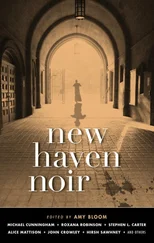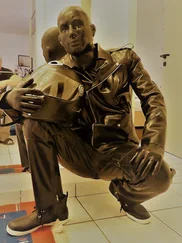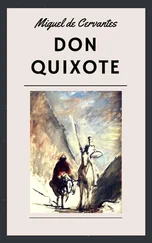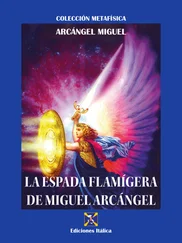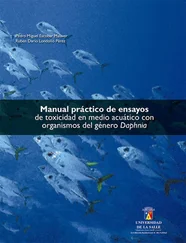Miguel Mejides - Havana Noir
Здесь есть возможность читать онлайн «Miguel Mejides - Havana Noir» весь текст электронной книги совершенно бесплатно (целиком полную версию без сокращений). В некоторых случаях можно слушать аудио, скачать через торрент в формате fb2 и присутствует краткое содержание. Город: New York, Год выпуска: 2007, ISBN: 2007, Издательство: Akashic Books, Жанр: Детектив, на английском языке. Описание произведения, (предисловие) а так же отзывы посетителей доступны на портале библиотеки ЛибКат.
- Название:Havana Noir
- Автор:
- Издательство:Akashic Books
- Жанр:
- Год:2007
- Город:New York
- ISBN:978-1-933354-38-5
- Рейтинг книги:4 / 5. Голосов: 1
-
Избранное:Добавить в избранное
- Отзывы:
-
Ваша оценка:
- 80
- 1
- 2
- 3
- 4
- 5
Havana Noir: краткое содержание, описание и аннотация
Предлагаем к чтению аннотацию, описание, краткое содержание или предисловие (зависит от того, что написал сам автор книги «Havana Noir»). Если вы не нашли необходимую информацию о книге — напишите в комментариях, мы постараемся отыскать её.
, authors uncover crimes of violence and loveless sex, of mental cruelty and greed, of self-preservation and collective hysteria, in a city characterized by ironic and wrenching contradictions.
Havana Noir — читать онлайн бесплатно полную книгу (весь текст) целиком
Ниже представлен текст книги, разбитый по страницам. Система сохранения места последней прочитанной страницы, позволяет с удобством читать онлайн бесплатно книгу «Havana Noir», без необходимости каждый раз заново искать на чём Вы остановились. Поставьте закладку, и сможете в любой момент перейти на страницу, на которой закончили чтение.
Интервал:
Закладка:
However gifted a mechanic and handyman, his real skill was making a palatable meal out of the scarce and low-quality government-issue foodstuff available. With herbs he grew in the garden he lovingly cultivated in the rear of the Rodríguez-López property, he was somehow able to turn even the tasteless three-quarters of a pound of soy blend that was each individual’s monthly allotment into a succulent roast.
Although he had never received any formal training as a chef, he instinctively knew how to bring out the best in everything he was given to work with. Over the years, he’d developed such confidence in his abilities that he was able to successfully transform certain foods — items that conjured up repellent images in most people’s minds (chicken feet, fish cheeks, etc.) — into meals that people would not only eat, but which actually tasted delicious. Sadly, in spite of all his abilities, Eladio was not able to come up with the most important ingredient: seafood for the dinner.
In spite of not having received a salary in more than three decades of working full-time as butler, maid, handyman, and family cook, Eladio considered himself fortunate to have a roof over his head. He knew that he was considered a member of the family, so his fate was their fate.
And although life had been difficult for all three, by combining their resources they had managed. They had never really undergone the worst privations of the Special Period. Until now, that is — since this dinner was upsetting a very fragile equilibrium, bringing Luis close to a physical and mental breakdown.
The important day was now less than forty-eight hours away, and what should have been a happy occasion had turned into a dreaded event. It was obvious to María Eugenia and Eladio that Luis had totally forgotten the original reason for the dinner, and was instead fixated on what food he was going to serve his guests.
Early that morning, after eating what passed for breakfast — at this point, not even Eladio’s culinary inventions could hide the fact that they were always hungry — Luis told Eladio that he wanted to speak with him privately, away from María Eugenia’s hearing. They decided the best place for such a conversation would be at the back of the property, near Eladio’s herb garden. María Eugenia would not question them going there. It was part of their daily ritual.
As he followed Luis, Eladio was taken aback at how thin and fragile-looking his employer had become. How was it that he hadn’t noticed the change in Luis’s appearance earlier? Had it occurred so slowly that it was difficult to see, or had it come over him quickly as a result of his preoccupation with the dinner? Eladio, saddened by what he was seeing, could not tell.
Making their way across the property was difficult, as Eladio had not had the strength lately to tend the grounds. After long minutes of carefully stepping in the overgrown tangle that was once flowers and shrubs, they reached the area beside the herb garden. Luis immediately headed for the wrought iron bench and sat down.
Luis was flushed, Eladio noticed, and breathing hard from all the exertion. Alarmed and not quite knowing what to do, Eladio stood a respectful distance from Luis while he waited for his employer’s command — much as he would have done in pre-Castro Cuba. Although he did not look directly at Luis — his eyes were pointed at the ground — he still had enough peripheral vision to see Luis reach into his sweat-soaked shirt, presumably to take out one of the few handkerchiefs he had left to mop the sweat from his face. But much to Eladio’s surprise, Luis instead took out three photographs. Luis slowly studied each of the them, smiling at the images of himself and his three friends, laughing, sunburned, drunk, sitting on the stern of one of their fishing boats, eating from the enormous platter of seafood in front of them.
“Eladio, how long have you been with our family?” Luis asked abruptly, peering up. “Around forty years by my calculations, right?”
“Forty-one, Señor Luis. Forty-one last March,” Eladio replied, a bit warily. As far back as he could remember, neither Señor Luis nor Señora María Eugenia had ever brought up the length of his employment. A terrible thought occurred to him. Was he about to get fired? Where would he go? What would he do? Now it was Eladio’s turn to begin to breathe hard.
“Yes, I’m sure you’re correct.” Luis leaned back, resting his body against the bench, and closed his eyes. He sat motionless for so long that Eladio began to think he had fallen asleep. Suddenly, he opened his eyes and sat up. “Eladio, I’ve lived a long, long life — some of it good, some of it not so good. Now I’m close to the end of it.”
“Oh no, Señor Luis, don’t talk like that!” Eladio had never before heard his employer discuss his mortality. “You have many, many more happy years ahead with Señora María Eugenia. Things will get better, señor, they will improve. This Special Period is only temporary.”
“Well, I’m not so sure about that, Eladio, that’s why I asked you to come out here, to have this talk with me.” Luis turned to look at him with a stern expression on his face. “I need your help with something — it’s a big favor.”
“Of course, Señor Luis, ask anything you want of me. As always, I am at your service.” Eladio struggled to speak in a normal tone of voice.
Luis waited for a few moments before speaking again. “You know how important the dinner — the dinner with my friends — is to me.” Eladio nodded. “Well, this favor I am going to ask of you has to do with that.”
During those years, Eladio had come to both love and hate the dinners. He loved them because they gave Luis something to look forward to. For weeks before the event, Señor Luis would discuss with great animation how wonderful it was that he would be getting together with his oldest and best friends, what a blessing it was that, although they were old, they were in reasonably good health and could still recall “the good old days” when they were young and had their lives ahead of them.
For weeks before that night, Eladio would watch as his employer took out the photo albums and pored over the pictures, searching each one for details he especially cherished — an expression in the eyes of Ricardo, the way the salt spray made Roberto’s hair coarse like a scrub brush. He studied them as a detective might examine a crime scene. Luis would always dwell longest on the same three photographs, the ones of him and his friends on his fishing boat, eating the seafood they had caught.
Eladio hated the dinner for the exact opposite reason that he loved them: the get-together with the childhood friends would remind Luis of the sadness, the hollowness, the despair of the lives they had led for the past forty years. The photographs were taken when Luis and his friends were in their early twenties, at the beginning of their lives. It was when looking at the photos in the season of each year’s dinner that Luis felt it most strongly: that all hope was gone, and suffering and indignities, hunger and old age were the only things ahead of them. None of their ambitions had been realized, and none were going to be. Their lives had been wasted. Now all they had to look forward to was more suffering.
This dinner was so much more than just a meal. Eladio was willing to do just about anything to make it as successful as it could be.
“Señor Luis, I am happy to go back out again to try to find the seafood.” Relieved to hear that the request from Señor Luis was nothing more serious than that, Eladio spoke quickly.
“No, Eladio, I’m not asking you to go look for any more lobster, crab, or shrimp. You’ve looked, María Eugenia has looked, I’ve looked.” Luis shook his head slowly. “There’s none to be found anywhere, we know that.” Luis stood up and took a few steps forward, until he was only a foot away from Eladio. “No, Eladio, the favor I am going to ask of you is much more serious, more important.” Luis put his hand on Eladio’s shoulder.
Читать дальшеИнтервал:
Закладка:
Похожие книги на «Havana Noir»
Представляем Вашему вниманию похожие книги на «Havana Noir» списком для выбора. Мы отобрали схожую по названию и смыслу литературу в надежде предоставить читателям больше вариантов отыскать новые, интересные, ещё непрочитанные произведения.
Обсуждение, отзывы о книге «Havana Noir» и просто собственные мнения читателей. Оставьте ваши комментарии, напишите, что Вы думаете о произведении, его смысле или главных героях. Укажите что конкретно понравилось, а что нет, и почему Вы так считаете.
